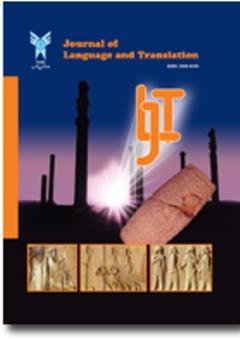Exploring Gendered Linguistic Strategies in White House Press Briefings: A Critical Discourse Analysis of Authority, Inclusivity, and Ideology
الموضوعات : نشریه زبان و ترجمهAhmed Hamad Kareem 1 , Sahar Najarzadegan 2 , Mahmood Kadir Ibrahim 3 , Fatinaz Karimi 4
1 - Department of English Languages, Isfahan (Khorasgan) Branch, Islamic Azad University, Isfahan, Iran
2 - Department of English Languages, Isfahan (Khorasgan) Branch, Islamic Azad University, Isfahan, Iran
3 - English Department, Baghdad, Imam Ja’afar Al-Sadiq University, College of Education, Kirkuk, Iraq
4 - Department of English Languages, Isfahan (Khorasgan) Branch, Islamic Azad University, Isfahan, Iran
الکلمات المفتاحية: Gendered language, political discourse, Critical Discourse Analysis, pronouns, White House press briefings,
ملخص المقالة :
This study explores the gendered linguistic strategies employed in White House press briefings by spokespersons Sean Spicer and Karine Jean-Pierre. Through the application of Critical Discourse Analysis (CDA), the research aims to identify distinct language patterns that reflect authority, ideology, and inclusivity. Through an analysis of pronouns, modal verbs, and specific lexical choices, this study highlights how gender inflects communication dynamics and power relations in the domain of political discourse. The findings also showed major differences in the languages used by both male and female spokespersons, evidencing the subtle ways in which gendered expectations shape public communication. Contemporary research on gender, hedging, assertiveness, and authority in political language supports these findings and is useful for contributions to sociolinguistics, applied linguistics, and gender studies. The implications of such a study would further suggest that political communicators can benefit from heightened awareness of these language patterns to ensure the application of more inclusive and effective engagement strategies within the public sphere.
Contemporary research on gender, hedging, assertiveness, and authority in political language supports these findings and is useful for contributions to sociolinguistics, applied linguistics, and gender studies. The implications of such a study would further suggest that political communicators can benefit from heightened awareness of these language patterns to ensure the application of more inclusive and effective engagement strategies within the public sphere.
Bull, P., & Fetzer, A. (2006). Who are we and who are you? The strategic use of forms of address in political interviews. Text & Talk - An Interdisciplinary Journal of Language, Discourse & Communication Studies, 26(1), 3-37.
Fairclough, N. (1992). Discourse and social change. Polity Press.
Fairclough, N. (1995). Critical discourse analysis: The critical study of language. Longman.
Holmes, J. (2006). Gendered talk at work: Constructing gender identity through workplace discourse. John Benjamins Publishing Company.
Holmes, J., & Meyerhoff, M. (2003). The handbook of language and gender. Blackwell Publishing.
Lakoff, R. (1975). Language and woman’s place. Harper & Row.
Lakoff, R. (2004). Language and woman’s place: Text and commentaries. Oxford University Press.
Ortega, A., Shaw, S. M., & Fairclough, N. (2022). Critical perspectives on gender in political discourse. Routledge.
Pérez-Castaños, N., & Ruiloba-Núñez, A. (2023). Gendered communication in press briefings: A comparative study. Journal of Political Communication Studies, 15(3), 112-130.
Reinhardt, M., Shaw, S., & Righetti, A. (2024). Gender dynamics in political discourse: Power, authority, and relational strategies. Journal of Language and Politics, 23(1), 85-102.
Righetti, A. (2021). The politics of language: Gender, power, and public perception. Journal of Sociolinguistics, 25(2), 230-250.
Ruiloba-Núñez, A., & Goenaga Ruiz de Zuazu, A. (2022). Relational authority: Gendered language strategies in political communication. Discourse & Society, 33(5), 543-561.
Shaw, S. M. (2020). Gender and political discourse: Linguistic analysis in the public sphere. Cambridge University Press.
van Dijk, T. A. (1993). Principles of critical discourse analysis. Discourse & Society, 4(2), 249-283.


